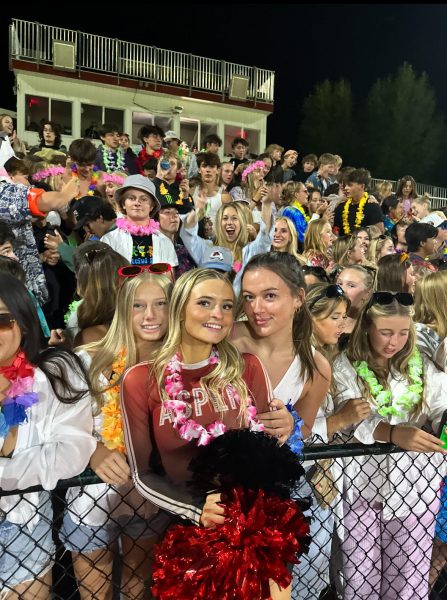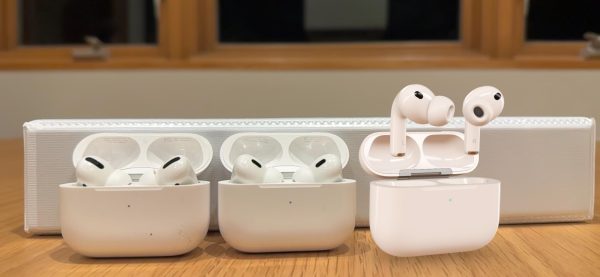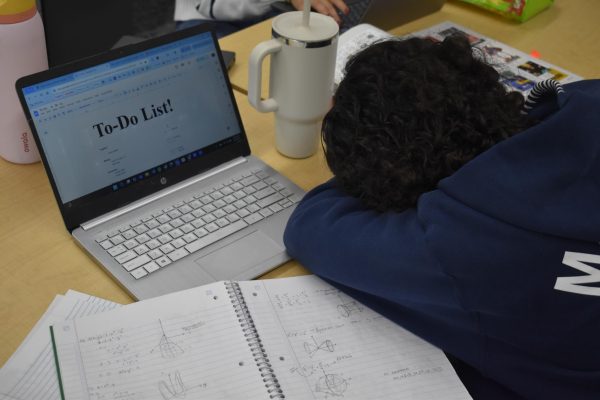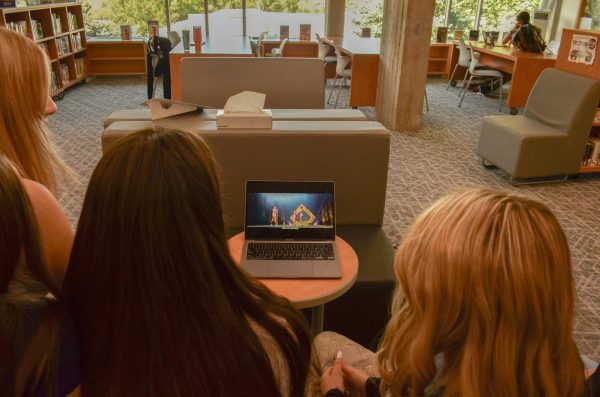Vulnerability: the key to our inner tranquility
How the AHS counseling department is helping students with their mental health
AHS students grapple with their mental health, not only during a global pandemic but in an area plagued by the Paradise Paradox. The AHS counseling department has made efforts to support students and developed plans to improve mental health at AHS.
As Mental Health Awareness month begins, it’s essential to introspectively reflect on mental health culture and where there may be a need for more support. Specifically, in Aspen, the Paradise Paradox [1] [2] affects almost everyone, including the local students. The Paradise Paradox is a cultural effect seen in wealthier areas that increases depression, anxiety, and suicide rates. The Aspen High School counseling department recognizes this and has made plans to improve how they will continue to support students in the future.
During the COVID-19 pandemic, the counseling department offered online workshops as well as the opportunity to schedule one-on-one meetings with the counselors. Both counselors also have a Google Voice phone number available to students to discuss questions or concerns about themselves or their peers. Currently, the counseling department is working to implement a psychological first aid training for students to recognize when someone needs help and when they should ask for help.
The AHS counselors, Lauren Reiss and Josh Berro have a caseload of approximately 280 kids each.
“Rather than tackling each student individually when they come to us- because that takes up a lot of time,” Berro said. “We’re really trying to get out there and try to give kids tools to deal with mental health before a crisis strikes.”
Mental health resources provided to students can be found on the AHS website, some of which include: Aspen Family Connections, Mind Springs, mental health tool kits, and a list of mental health services from Aspen to Glenwood.
Asking for help is often a difficult challenge, especially for young people, but Reiss outlined the initial procedure for a student in crisis.
“The first step would be coming in and talking to the counselor. We have some questions that we run through, an assessment that helps us determine the severity of the risk, and then we make some action plans,” Reiss said. “If it’s a higher level of risk, that is when we call in Mind Springs or another professional to also do an assessment. Then we work with the student and the family to create a plan that is appropriate.”
Two years ago, AHS introduced a professional clinician program from Mind Springs, which provides students with an opportunity to speak with a mental health clinician. Coulter Burch, the school-based mental health clinician, began working with AHS at the start of the 2020-21 school year. His approach to handling mental health issues is prevention and awareness. He hopes to destigmatize mental health problems at AHS by helping students form friendships together and connect.
“People tend to connect more thoroughly through our weaknesses and vulnerability, so in reality, the people you feel closest to are the people that you feel like you can share anything with in an unconditional way,” Burch said. “We tend to want to minimize it [mental health] as a weakness and isolate that part of ourselves and only show you [everyone else] the strengths.”
Kelsey McHugh, an AHS senior, transferred from The Aspen Community School and looked to Reiss for help with the transition. She has maintained a healthy communication with Reiss throughout her high school experience.
“Lauren has been really supportive of me. Whether I was struggling with school or just needed extra support, she has been there for me,” McHugh said. “She pushed me to become more of an advocate for myself.”
While some students feel comfortable seeking help through the counselors, many do not. This has no definitive reason, but the causes may be due to the culture surrounding mental health at AHS and general stigmatization.
Jocelyn Carreno, an AHS senior, has a personal relationship between her family and Berro and therefore was more comfortable asking for help from him. However, she believes that the majority of students do not have the same experience with the counselors.
“Our school values mental health but sometimes does not provide the support that certain students need. It’s more like ‘we’re here and available,’ but it’s not as effective as they think it is, and I feel like there are a lot more students suffering from mental health issues in our school that don’t know how to seek help.”
Carreno believes that the school can improve by opening the conversation about mental health and having active communication between students and teachers.
“I think that the conversation needs to start by acknowledging that it [mental health] needs to be discussed in classrooms more and give students a voice. Often, I feel like our teachers are telling us the signs, but there’s never been much of an open conversation with the community itself, and there needs to be more of a space where students can speak up and not be afraid to be judged.”
Maile LaPenna, an English teacher at AHS, hopes for students to open up about their mental health. As an English teacher, she experiences a more holistic view of students through their writing.
“I think that people have built up so many walls and labels around mental health, and I wish more people were willing to take those walls down. I feel like the kids that are in a place that can say, ‘I have issues, and I’m willing to ask for help,’ they get the help,” LaPenna said.
With the help of student, parent, and teacher input, the counseling department could create a healthy environment in which students can learn and be open with each other about their struggles. The counseling department is making efforts to destigmatize mental health and generally improve the mental health culture at AHS.
“You’re [the students] not alone. I would be surprised to learn about a student that didn’t have some kind of mental health issue or problem. It’s totally normal,” Berro said.” Everybody faces social, emotional, and mental challenges in their lives. The more we normalize these problems, the easier it will be for students to face them.”

Aja is currently a senior and has been writing with the Skier Scribbler since she was a freshman. She's spent her quarantine growing new plants, reading,...































